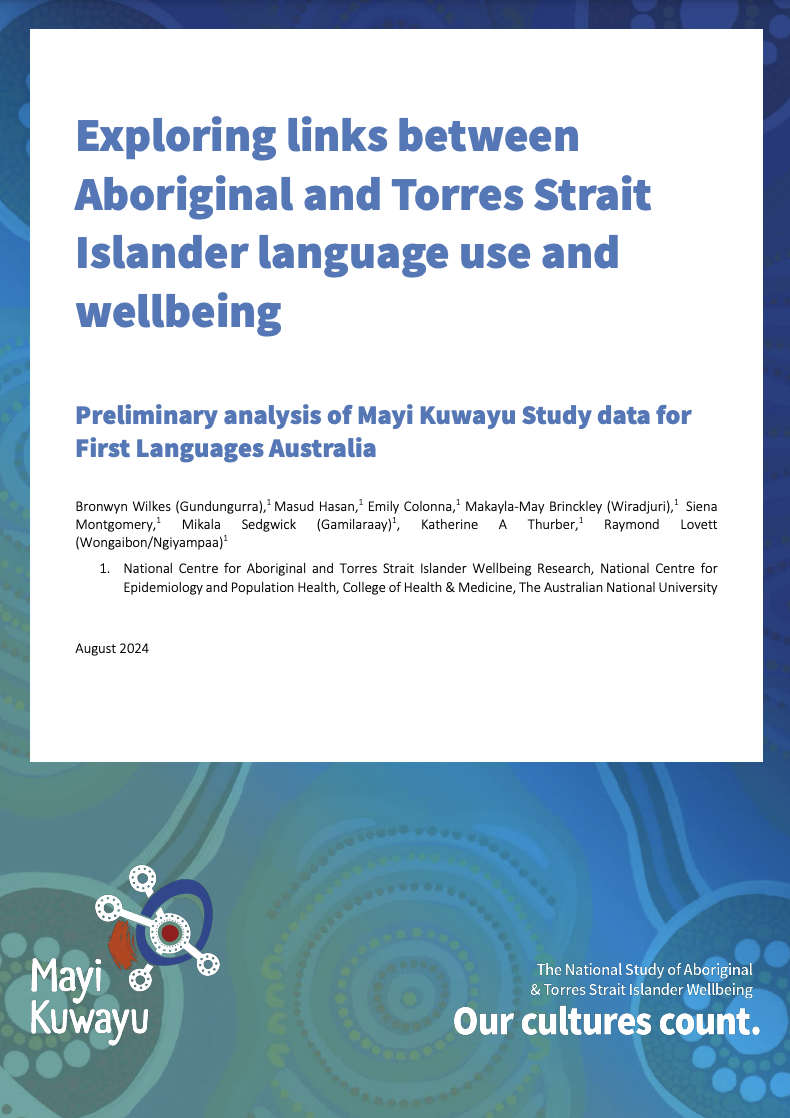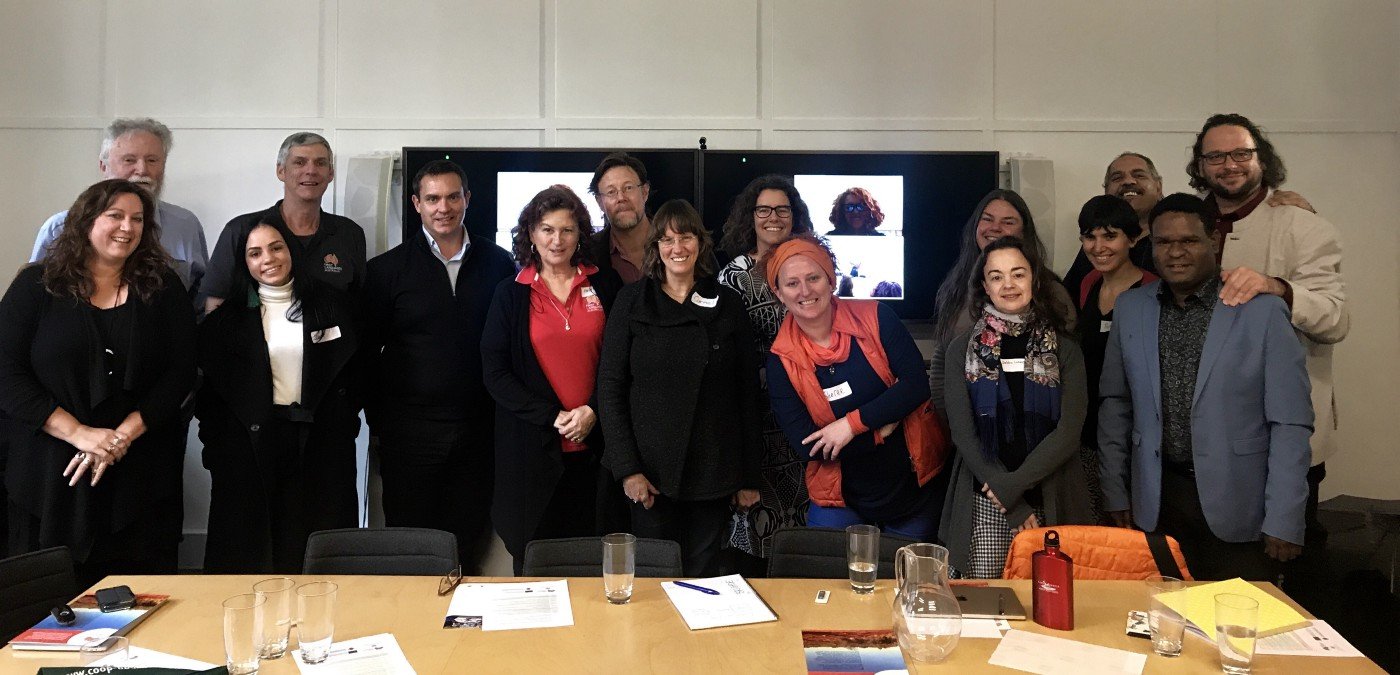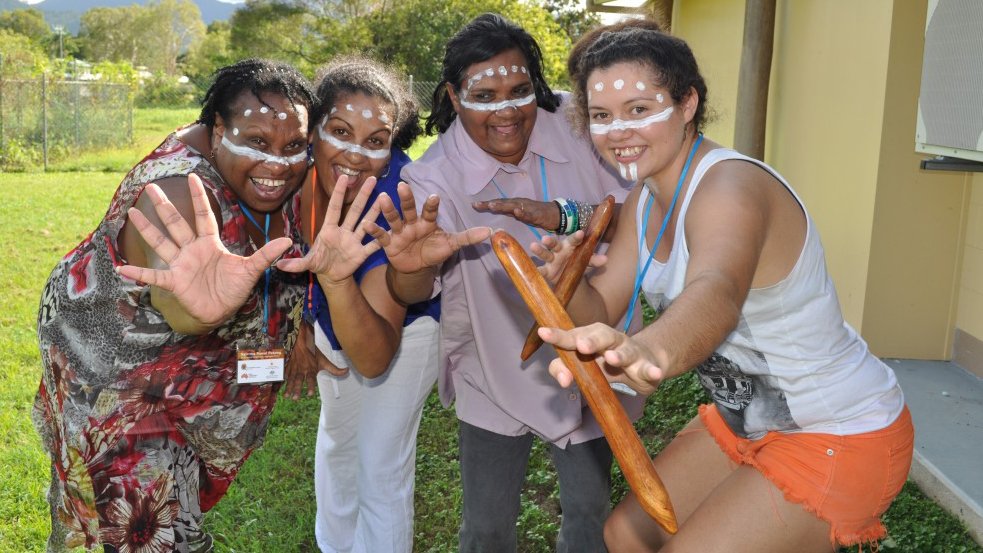
Indigenous language activities and wellbeing
First Languages Australia encourages work exploring the relationships between Indigenous language activities and wellbeing. This includes revival and maintenance language work.
Aboriginal and Torres Strait Islander language leaders, workers and communities have always known there's a connection between language and wellbeing. They want others to know and understand this relationship as well.
Mayi Kuwayu Study
First Languages Australia has been working with the Mayi Kuwayu Study Team from Yardhura Walani, the National Centre for Aboriginal and Torres Strait Islander Wellbeing Research. The Mayi Kuwayu Study is looking at links between language use and wellbeing for Aboriginal and Torres Strait Islander adults.
The study is a longitudinal study of Aboriginal and Torres Strait Islander adults. It collects data to examine the links between culture and wellbeing. The study is led and governed by Aboriginal and Torres Strait Islander peoples. It also follows principles of Indigenous Data Sovereignty and Indigenous Data Governance as part of its work. All Aboriginal and Torres Strait Islander adults aged 16 years and over are eligible to take part in the Mayi Kuwayu Study.
Longitudinal studies, like the Mayi Kuwayu Study, track changes over time in people’s experiences and wellbeing. In these types of studies, participants complete a survey at different points in time, called ‘waves’. Wave 1 of the Mayi Kuwayu Study happened between 2018 and 2022. It includes over 10,000 participants from more than 150 nation groups. Wave 2 started in 2022 and is still going.
The Wave 1 Mayi Kuwayu survey asked questions covering different areas. The topics included health and wellbeing, cultural practices and expression, family support and connection. Some questions asked about speaking and learning language and taking part in language programs. For the First Languages Australia research project, the Mayi Kuwayu Study Team analysed responses to these language questions. They looked at data from over 9,000 participants. Researchers were trying to see if there were links between language uses and different wellbeing outcomes. They found taking part in a language program is positively linked with multiple aspects of wellbeing including good to excellent general health; high happiness; high life satisfaction, and cultural connectedness.
First Languages Australia and the Mayi Kuwayu Study Team are planning to keep working together. They are focused on exploring what else the data says about links between language and wellbeing. This could include looking at changes over time in language uses and different wellbeing outcomes as part of the study.





Ongoing work into Indigenous language activities and wellbeing
First Languages Australia supports strong collaborations between those who share a passion and commitment to preserving and promoting the first languages of this country.
First Languages Australia's current work builds on conversations since 2017, when we met with researchers from the Research Unit for Indigenous Language (RUIL), the Centre of Excellence for the Dynamics of Language (CoEDL) and Mayi Kuwayu: Longitudinal study of Aboriginal and Torres Strait Islander health and wellbeing, to discuss establishing a national focus on the connection between wellbeing and first languages.
‘Being part of these discussions has been inspiring. With the work of all of us here together it feels like there may never be another language lost in Australia.’
- Stephen Atkinson
These discussions are a bridge to richer engagement between researchers and Indigenous community members, encouraging increased community participation in language research.
Attendees of First Languages Australia language activity links to wellbeing meeting, August 21st, 2017
Collecting proof of the connection between language and wellbeing can have profound effects on community health and access to language services. This qualitative and quantitative evidence is useful in advocating and gaining ongoing support for community language activities.
For linguists, this research has the power to:
increase understanding about language community needs about research collaborations around language
broaden perspectives about how and why communities might wish to be involved in research
increase the pool and the diversity of language community members willing to contribute their skills to research activities
encourage a deeper understanding of Aboriginal and Torres Strait Islander peoples which can then strengthen empathy and ease of communication
For language communities, the research has the power to:
allow people to better engage with researchers and collaborate in the development of research methodologies
increase the community interest in language work
increase the financial support for language activities
see a stronger drive coming from communities to seek research collaborations and to actively engage in the work because of a greater shared understanding of research process, rationale and intended benefits.
Ngirrma Puwal Pukang attendees, 2014.




